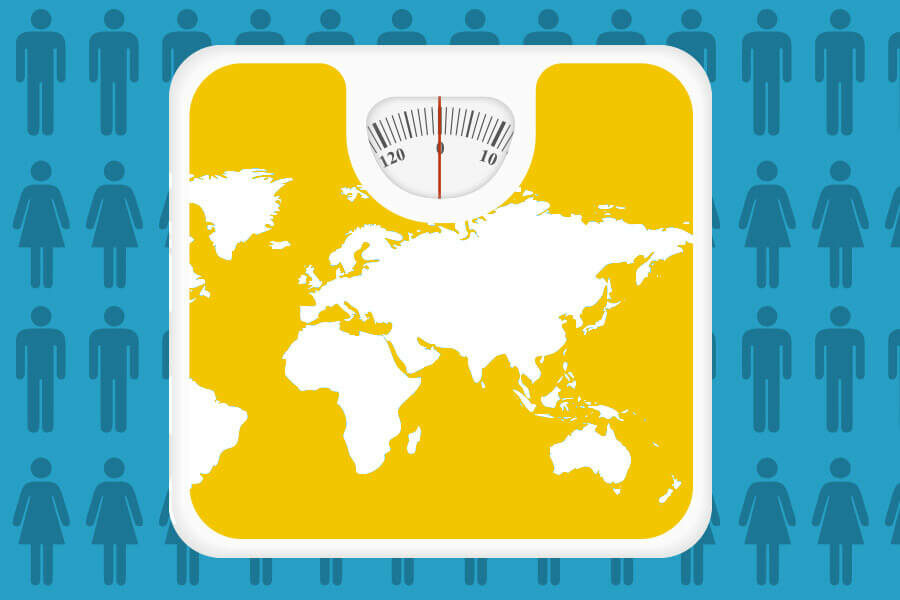The global view of obesity

DATE
TYPE Prevention Centre News
Determined action and bold leadership, including by governments, are required to reduce the rapidly growing burden of obesity, according to experts attending the 2022 International Congress on Obesity (ICO), which opens in Melbourne on Tuesday 18 October.
Researchers from the Prevention Centre and the Collaboration for Enhanced Research Impact (CERI) attending ICO say that addressing the global challenge of obesity requires a move away from the existing narrative of blame and individual responsibility, which promotes stigma, and a focus instead on treatment and prevention with an equity and systems lens.
An ICO panel on Saturday 22 October (11.15am – 12.15pm AEDT) will bring together researchers and policy makers to discuss policy actions needed to address the challenge of obesity, which they say will affect more than one billion people globally by 2030.
The session will discuss a special issue of Public Health Research & Practice exploring actions needed to address obesity through the life course, produced in partnership with the Health and Social Care Unit at Monash University, with support of VicHealth.
Professor Helen Skouteris, Director of CRE HiPP and head of the Health and Social Care Unit at Monash University says the aim is to bring together both treatment and prevention experts and advocates as well as those who have lived experience to discuss issues of common interest, such as weight stigma and equity.
The National Obesity Strategy and the National Preventative Health Strategy provide opportunities for change in obesity-related policy over the coming decade, as do the recent recommendations and targets of the WHO’s World Health Assembly.
Professor Helen Skouteris, Monash University
“But we want to discuss how we move forward from these strategies and recommendations – we are open to all ideas and perspectives to generate an equitable, systems approach to targeting the wicked problem of obesity,” she said.
The ICO will showcase a range of Prevention Centre and CERI research, including the effects of COVID-19 on obesity, climate change and healthy weight, food prices and affordability of healthy food, and obesity in children. A list of events featuring members of our network is available on the Prevention Centre website.
Other related events taking place in Melbourne this week include:
- Tuesday 18 October, 1.00 – 2.00 pm AEDT, Deakin Downtown: Exploring the value of working in partnership to drive meaningful change in healthy food retail, at which an expert panel chaired by Professor Anna Peeters of RE-FRESH CRE will share their experiences and learnings on the value of working in partnership, plus tips on how to empower communities to enact impactful change in healthy food retail
- Friday 21 October, 8.00 am AEDT, ICO Plenary 3: Launch of the 2022 Food Policy Index reports, which benchmark Australian governments on their implementation of globally recommended policies to improve population diets. Associate Professor Gary Sacks, Co-Director the Global Centre for Preventative Health and Nutrition (GLOBE), will discuss the findings.
In Australia, nearly two thirds of adults and one in four children is living with overweight or obesity. Public health experts have called on governments to do more to meet targets set by the National Obesity Strategy of reversing the trend in the prevalence of obesity in adults by 2030 and reducing overweight and obesity in children and adolescents aged 2-17 years by at least 5% by 2030.
Professor Skouteris says that any policy action must move the onus away from blaming the individual, as obesity is usually caused by factors outside people’s control and is often an issue of socio-economic and health-related inequalities.
This should involve creating environments that support health, embedding cross-sectoral action, partnering with people with lived experience, and ensuring accountability.
“To address the challenge of obesity successfully, we must focus on treatment and prevention that is non-stigmatising and we need an equitable, holistic, systems approach,” she said.
“In doing this, Australia has the opportunity to achieve the goals of our national strategies and show global leadership in reducing the risk and burden of obesity.”



